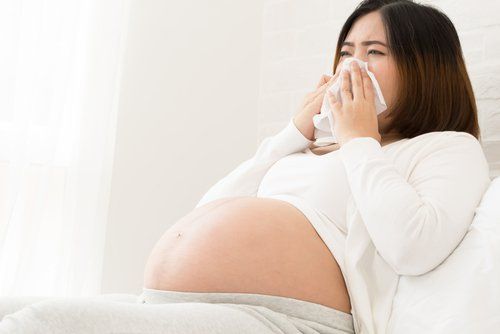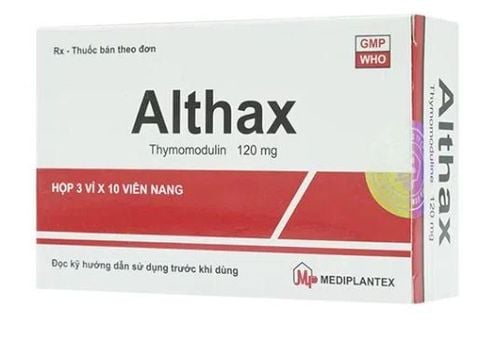This is an automatically translated article.
Allergic rhinitis is a fairly common disease in pregnant women, estimated up to 20% of symptoms of pregnancy. Allergic rhinitis during pregnancy is not only uncomfortable for the mother, but can also affect the fetus.
1. What is allergic rhinitis?
Allergic rhinitis is an inflammation of the nasal mucosa caused by exposure to respiratory allergens. The disease has typical symptoms that are: Itchy nose, stuffy nose, sneezing and runny nose.
Pregnancy rhinitis or allergic rhinitis of pregnancy can be defined as nasal symptoms during pregnancy, lasting 6 or more weeks without other signs of respiratory infection and changing. completely lost within two weeks of birth.
Trắc nghiệm: Bạn có hiểu đúng về dấu hiệu mang thai sớm?
Các dấu hiệu mang thai sớm không phải chỉ mỗi trễ kinh mà còn có rất nhiều dấu hiệu khác như xuất huyết âm đạo, ngực căng tức,… Điểm xem bạn biết được bao nhiêu dấu hiệu mang thai sớm thông qua bài trắc nghiệm này nhé!
2. Causes of allergic rhinitis during pregnancy
About 15-20% of pregnant women are affected by allergic rhinitis and are the most common disorder causing discomfort during pregnancy.
The cause of allergic rhinitis during pregnancy is mainly due to the body's response when it encounters allergen factors (factors foreign to the body). Common allergens such as: cold weather, house dust, pollen, pet dander,...
These reactions occur in the mucous layer of the upper respiratory tract such as the nose and throat. , sinuses,... From there, causing inflammation and irritation of the mucosa here. When exposed to allergens, the patient will sneeze, itchy nose, runny nose or stuffy nose, very uncomfortable.
Especially, for people with allergies such as bronchial asthma, atopic dermatitis, chronic urticaria, ... the risk of allergic rhinitis is higher than others.
In addition to entering the respiratory tract, irritants can also enter the body through the skin or through ingestion.

3. Effects of allergic rhinitis on mother and baby
In essence, allergic rhinitis during pregnancy may not directly affect the fetus.
However, allergic rhinitis during pregnancy can indirectly affect the fetus if left unchecked. Especially when the mother shows signs of insomnia, stress or fatigue. More severe cases can cause superinfection leading to chronic rhinitis, pharyngitis. Long-term allergic rhinitis can lead to a decrease in oxygen supply in pregnant women while sleeping, thereby affecting the amount of oxygen supplied to the fetus, increasing the risk of gestational hypertension, preeclampsia. and intrauterine growth retardation. In addition, the continuous sneeze movement will stimulate uterine contractions, if too much stimulation will cause miscarriage or premature birth.
4. Preventing allergic rhinitis during pregnancy

Prevention is probably the most effective measure and to be able to prevent allergic rhinitis during pregnancy most effectively, pregnant women need to pay attention to the following:
Find out if allergens cause this condition to be effectively prevented (by allergen-specific methods such as skin testing or blood tests for allergen-specific IgE). Keep your home and living environment clean, cool, and avoid moisture. Do not keep animals such as dogs, cats, ... in the house. Avoid re-eating previously allergenic foods. When it gets cold, it is necessary to keep the body warm, especially the neck and nose area. Clean teeth daily, brush teeth after eating, before and after waking up. You should wear a mask when cleaning your house and when going out on the street. Note that, do not arbitrarily treat allergic rhinitis with drugs without a doctor's prescription. Because some medicines for allergies and runny nose symptoms can affect the fetus.
If you have unusual symptoms, you should be examined and consulted with a specialist.
Please dial HOTLINE for more information or register for an appointment HERE. Download MyVinmec app to make appointments faster and to manage your bookings easily.













